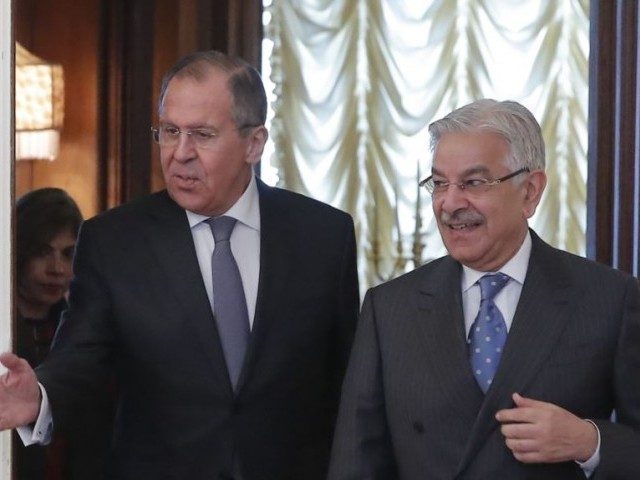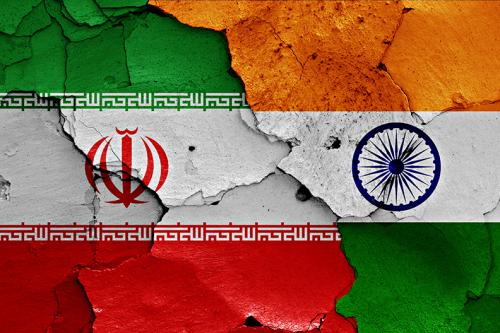News Desk |
Pakistan and Russia are mutually important for each other and both countries need to embolden cooperation in all economic sectors for mutual interests, said Lahore Chamber of Commerce and Industry (LCCI) President Malik Tahir Javaid.
Speaking to the Embassy of Russian Federation in Pakistan Trade Representative Yury Kozlov, Javaid spoke very highly about the importance of the China-Pakistan Economic Corridor (CPEC) and highlighted the trade opportunities and economic potential of Pakistan.
Talking to his Russian counterpart, the NA speaker said that Pakistan considers Russia as a valuable friend who had been a partner in economic and infrastructural development in Pakistan.
He said that Russian expertise in energy and engineering can help Pakistan grow in these sectors. The LCCI president also said that Russia helped Pakistan in establishing Pakistan Steel Mills, which played a crucial role in the development of the country.
“Pakistan and Russia have been regular trading partners but the volume of two-way trade hardly reflects the actual potential of the trade that can be executed.”
The president was of the view that the balance of trade favors Russia and among the top importing and exporting destinations of Pakistan around the globe, Russia comes at 33rd and 28th places, respectively.
Read more: Pakistan Is Uniting China, Russia, and Turkey against Trump’s Afghan strategy
Referring to the recent trade figures, Javaid said that it is good to see that the volume of bilateral trade has improved after some years. In 2015, it was around $331 million, which went up to $403 million in 2016. This positive change was the result of increase in imports from Russia, which grew from $170 million to $258 million during that period.
Earlier, Speaker Ayaz Sadiq stressed the need for regular interaction between the political and parliamentary leadership of Pakistan and Russia to build the bridges of understanding and friendship.
He said that in contrast there has been a consistent decline in Pakistan’s exports to Russia. From 2013 onwards, exports dipped from $188 million to $161 million and ended up at $145 million last year.
The LCCI official was of the opinion that development of formal banking channels and direct flights between the two countries is the need of the hour, as these steps will boost bilateral trade.
Talking about CPEC, he said the project is well on its way to completion and Gwadar Port has also become operational. “We are glad to see that Russia has shown interest to be part of this mega project.”
He further said, “We are optimistic that active collaboration between Pakistan and Russia in CPEC will definitely strengthen trade and economic ties. I think by developing private to private contacts, we can gradually increase the volume of bilateral trade and Pakistan would wish to achieve the favourable balance of trade with Russia.”
Read more: Iran joins China, Russia and Pakistan in rejecting Trump’s Afghan policy
Also speaking on the occasion, Mr. Yuri Kozlov pledged to make joint efforts to enhance the volume of two-way trade.
Vyacheslav Volodin thanked the prime minister for the warm welcome and said enhanced trade ties between the two countries would serve to provide a solid base for forging greater cooperation
Last week, Prime Minister (PM) Shahid Khaqan Abbasi greeted a Russian government contingent and said that a strong partnership between Pakistan and Russia would contribute towards promoting peace, stability and regional cooperation.
“Pakistan desires to forge a long-term and multi-faceted partnership with Russia in all areas of cooperation, including trade and energy sectors,” he told the State Duma of Russian Federation Chairman Vyacheslav Volodin, who along with a delegation called on him, the PM office media wing said in a statement. The prime minister said that Pakistan attached high priority to its relations with Russia.
PM said that there existed a huge potential between the two countries to further enhance their trade volume and strengthen bilateral economic ties. Welcoming the chairman of State Duma to Pakistan, he observed that the six-party conference of the speakers was a useful platform to regularly interact and enhance cooperation in the field of counter-terrorism, regional security and connectivity.
National Assembly (NA) Speaker Ayaz Sadiq, BISP Chairperson Marvi Memon, MNA Makhdoom Khusro Bakhtyar and senior officers were present during the meeting.
Read more: India defies US by showing solidarity with Russia
Vyacheslav Volodin thanked the prime minister for the warm welcome and said enhanced trade ties between the two countries would serve to provide a solid base for forging greater cooperation and strengthening of bilateral relations.
The LCCI official was of the opinion that development of formal banking channels and direct flights between the two countries is the need of the hour, as these steps will boost bilateral trade.
The Russian dignitary also appreciated the role of NA speaker towards strengthening of Pak-Russia relations through a parliamentary forum. He conveyed a strong desire of his country for establishing long-term and strengthened relations with Pakistan.
Later, the prime minister hosted a dinner in honour of visiting speakers from Afghanistan, China, Iran, Russia and Turkey. Earlier, Speaker Ayaz Sadiq stressed the need for regular interaction between the political and parliamentary leadership of Pakistan and Russia to build the bridges of understanding and friendship.
Talking to his Russian counterpart, the NA speaker said that Pakistan considers Russia as a valuable friend who had been a partner in economic and infrastructural development in Pakistan. He added that constant engagement from both sides had added depth to the existing relations.
Read more: US continuous drift towards India raises new risks for Pakistan
“Pakistan and Russia not only share the same continent but also the same values of democracy and human freedom, therefore, both the nations need to take their bilateral relationship to new heights,” he said. He said Pakistan valued its relations with Russia and wanted to diversify them through parliamentary, people-to-people and economic ties.














